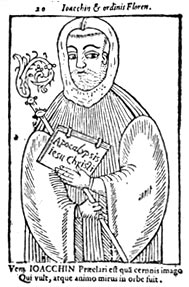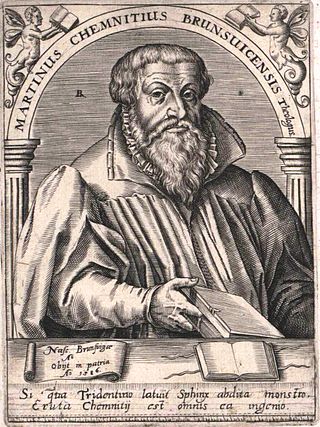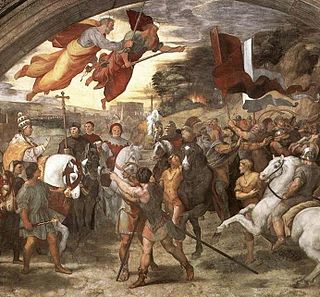
A catechism is a summary or exposition of doctrine and serves as a learning introduction to the Sacraments traditionally used in catechesis, or Christian religious teaching of children and adult converts. Catechisms are doctrinal manuals – often in the form of questions followed by answers to be memorised – a format that has been used in non-religious or secular contexts as well. According to Norman DeWitt, the early Christians appropriated this practice from the Epicureans, a school whose founder Epicurus had instructed to keep summaries of the teachings for easy learning. The term catechumen refers to the designated recipient of the catechetical work or instruction. In the Catholic Church, catechumens are those who are preparing to receive the Sacrament of Baptism. Traditionally, they would be placed separately during Holy Mass from those who had been baptized, and would be dismissed from the liturgical assembly before the Profession of Faith and General Intercessions.
An enchiridion or encheiridion is a small manual or handbook.

Joachim of Fiore, also known as Joachim of Flora, was an Italian Christian theologian, Catholic abbot, and the founder of the monastic order of San Giovanni in Fiore. According to theologian Bernard McGinn, "Joachim of Fiore is the most important apocalyptic thinker of the whole medieval period." The Divine Comedy of Dante Alighieri is one of the most famous works possibly inspired by his ideas. Later followers, inspired by his works in Christian eschatology and historicist theories, are called Joachimites. On June 27, 2024, Pope Francis, in his message for the World Day of Creation, quoted Joachim of Fiore as saying that he "Joachim was able to propose the ideal of a new spirit" and thus marks a turning point in history, as this had never happened before in more than eight centuries since the death of the Florensis monk.
In the Chinese common religion and philosophical schools the idea of the universal God has been expressed in a variety of names and representations, most notably as 天 and 上帝.
Anton Strle was a Slovenian professor of dogmatic theology and a Catholic priest. He was born in the village of Osredek in the parish of Sveti Vid nad Cerknico. He was ordained priest in 1941 and received his D.D. degree in 1944 from the University of Ljubljana.

Angelo Maria Querini or Quirini was an Italian Cardinal of the Roman Catholic Church.

Martin Chemnitz was an eminent second-generation German, Evangelical Lutheran, Christian theologian, and a Protestant reformer, churchman, and confessor. In the Evangelical Lutheran tradition he is known as Alter Martinus, the "Second Martin": Si Martinus non fuisset, Martinus vix stetisset goes a common saying concerning him. He is listed and remembered in the Calendar of Saints and Commemorations in the Liturgical Church Year as a pastor and confessor by both the Evangelical Lutheran Church in America and Lutheran Church–Missouri Synod.
The Declaration of the Clergy of France was a four-article document of the 1681 assembly of the French clergy. Promulgated in 1682, it codified the principles of Gallicanism into a system for the first time into an official and definitive formula.
Heinrich Joseph Dominicus Denzinger was a leading German Catholic theologian and author of the Enchiridion symbolorum et definitionum, a work commonly referred to simply as Denzinger after him.
Ad sanctam beati Petri sedem is an apostolic constitution in the form of a papal bull promulgated by Pope Alexander VII in 1656 which judged the meaning and intention of Cornelius Jansen's words in Augustinus, and confirmed and renewed the condemnation in Cum occasione promulgated by Pope Innocent X in 1653 that five propositions found in Augustinus were heretical.

Jean Garnier was a French Jesuit church historian, patristic scholar, and moral theologian.
The formulary controversy was a 17th- and 18th-century Jansenist refusal to confirm the Formula of Submission for the Jansenists on the part of a group of Catholic ecclesiastical personnel and teachers who did not accept the charge that their beliefs about the nature of man and grace were heretical as the Holy See declared. In the Kingdom of France, it pitted Jansenists against Jesuits. It gave rise to French theologian Blaise Pascal's Lettres provinciales, the condemnation of casuistry by the Holy See, and the dissolution of organised Jansenism.
Vineam Domini Sabaoth is an apostolic constitution in the form of a papal bull promulgated by Pope Clement XI in 1705 which declared that "obediential silence" is not a satisfactory response to the Formula of Submission for the Jansenists.

A dogma of the Catholic Church is defined as "a truth revealed by God, which the magisterium of the Church declared as binding". The Catechism of the Catholic Church states:
The Church's Magisterium asserts that it exercises the authority it holds from Christ to the fullest extent when it defines dogmas, that is, when it proposes, in a form obliging Catholics to an irrevocable adherence of faith, truths contained in divine Revelation or also when it proposes, in a definitive way, truths having a necessary connection with these.

Theatrum Chemicum is a compendium of early alchemical writings published in six volumes over the course of six decades. The first three volumes were published in 1602, while the final sixth volume was published in its entirety in 1661. Theatrum Chemicum remains the most comprehensive collective work on the subject of alchemy ever published in the Western world.
Famuli vestrae pietatis, also known by the Latin mnemonic duo sunt, is a letter written in 494 by Pope Gelasius I to Byzantine Emperor Anastasius I Dicorus on the relationship between religious and secular officials.
Regiminis Apostolici is an apostolic constitution in the form of a papal bull promulgated by Pope Alexander VII in 1665 which required, according to the Enchiridion symbolorum, "all ecclesiastical personnel and teachers" to subscribe to an included formulary, the Formula of Submission for the Jansenists:
I, N., submit to the apostolic constitution of the Supreme Pontiff Innocent X dated May 31, 1653, and to the constitution of the Supreme Pontiff Alexander VII dated October 16, 1656, and, with a sincere heart, I reject and condemn the five propositions taken from the book of Cornelius Jansen entitled Augustinus and in the sense understood by that same author, just as the Apostolic See has condemned them by the two above-mentioned constitutions, and I so swear: So help me God, and these holy Gospels of God.

The Papacy in late antiquity was a period in papal history between 313, when the Peace in the Church began, and the pontificate of Simplicius in 476, when the Roman Empire of the West fell.







